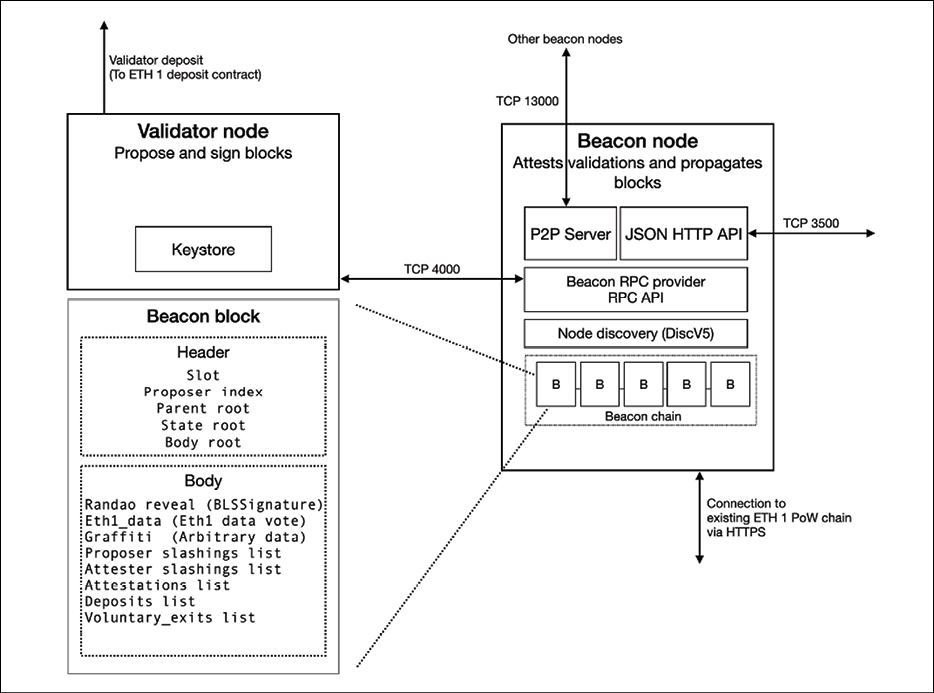Architecture
The following diagram shows the high-level architecture of Ethereum 2.0 clients and how they work together with the beacon chain. After completing the Running Ethereum 2.0 clients exercise in the book's online content repository, we'll be able to see the architecture shown in the following diagram in reality:

Figure 16.3: Ethereum 2.0 high-level architecture (based on Prysmatic clients and spec for Phase 0)
The preceding diagram shows a validator node and a beacon node with their different services running on different ports. The structure of a beacon block is also shown on the left-hand side, including the fields of the block header and body as per the Phase 0 specifications.
Now that we have a good understanding of Ethereum 2.0's design goals, its phases, and architecture, you can put your new knowledge into practice. Doing so is out of the scope of this chapter, but by accessing this book's bonus content pages here: https://static...
































































